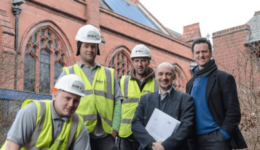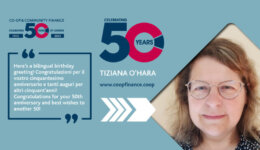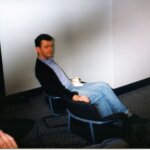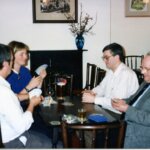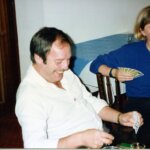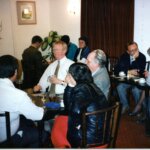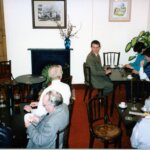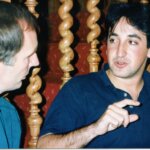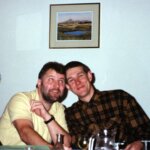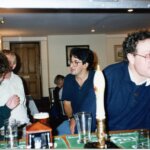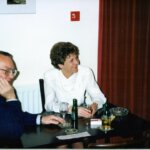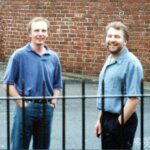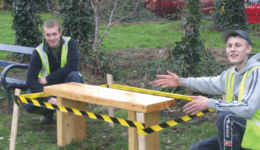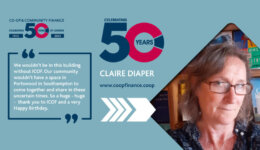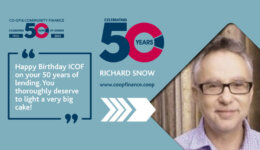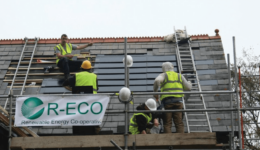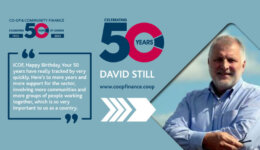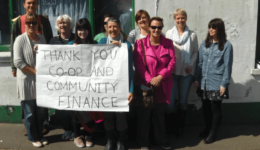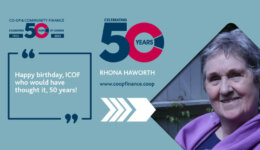Today in our series of interviews with friends from the last fifty years, we speak to David Still CBE, who has been both a borrower and a Trustee.
“I first heard about ICOF when I was part of a workers cooperative called Northumbrian Energy Workshop, in around 1984. We were looking for finance and borrowed from ICOF. And I then became a Trustee in 1987 and stayed for ten years, until 1997.
As a borrower ICOF was one of the only sources of funding and finance for a workers’ co-op at that time. Funding wasn’t easy, interest rates were high, so it was very, very important to have a robust but sympathetic lender, who we could approach and develop our business plan with and go from there.
Getting involved as a Trustee became quite an interesting process. ICOF was going through quite a lot of change from being a very small organisation with very few people to a much more expansive organisation, with more funding, as well. And so we changed, and change is never fun! But we went through it and survived.
Previously, I had been involved overseas with Voluntary Services Overseas in Papua New Guinea working in business development – producing projections, seeking finance, etc. Going into ICOF I then effectively had two jobs, one being the stewardship of ICOF and its funds and how it went on and the other being loan oversight. Probably the major thing for me was being involved in assessing business plans that were coming forward, and working very closely with the monitoring officers there which was mainly Ian Taylor and Martin Hockley and latterly with Nigel Mason and Leon Boris as well. So, very much a learning process for me, in that I learned things from every review I did, and increasingly felt able to give them appropriate feedback, from my experience.
There was a shift in focus through the time I was with ICOF, probably from more pure cooperative to slightly more social enterprise type opportunities. Not massive changes and all still member owned. We also went through a more robust change in how we were assessing and reviewing projects, we increased our ability to understand what borrowers were wanting, while also developing a bit more flexibility because of our changed funding. Our initial funding was very tight on who and what we could fund. When we had the PLC funding, then we had a bit more flexibility on the type of organisation we could lend. That gave us a bit of internal discussion on how we were to do that. But that was our task and our and it was quite good. We were very active as trustees, we didn’t turn up just once a quarter for the jolly, it was very much about being involved. I was quite heavily involved with Ian Taylor, reviewing projects. He would come up and do a series of monitoring visits or grant reviews. That was very helpful, to be active in between the quarterly meetings, getting involved in the financial side of the business and understanding it, and making sure we were doing the right things.
Today, and in the future, I think ICOF has the opportunity again, to be a nimble investor as trying to raise money from a bank or other organisation is very difficult. There are more opportunities like crowdfunding now which could come in and could also be a kind of like a product that ICOF could deliver and support, so that it’s happening there in one place, giving a potential business more options to to than a conventional bank. I don’t think conventional banks are acting very sensibly at this moment in time. They’ve been very cautious and my experience of mainstream banks is not very positive at this stage. I think they have limited vision. What ICOF can offer, relatively to a small number of people, is a very much one to one relationship. The opportunity in our sector, where ICOF acts, is that ability to develop those relationships and get businesses to grow despite the rest of the world.
A particular fond memory I have of ICOF – probably the most interesting thing that I did – is of a meeting in the House of Commons with the late John Smith MP, we were talking about future co-op funding. It was not long before he died. It was great to have such interest in what we were doing from somebody who had a lot of clout in the political arena.
ICOF, happy birthday. Your 50 years have really tracked by very quickly. Here’s to more years and more support for the sector, involving more communities and more groups of people working together, which is so very important to us as a country.”

